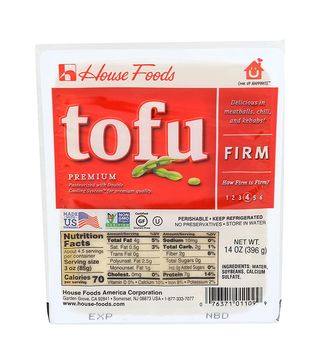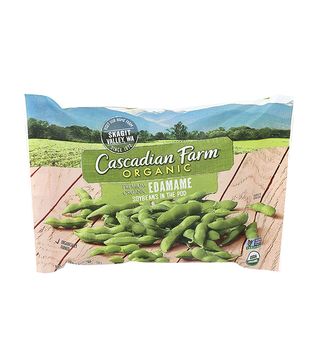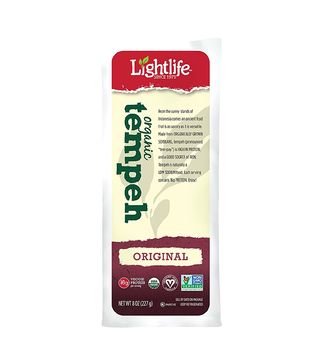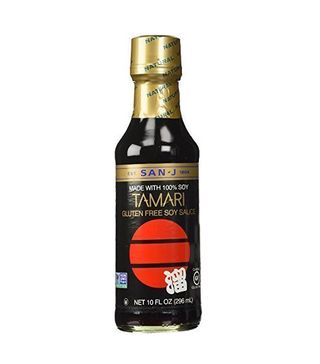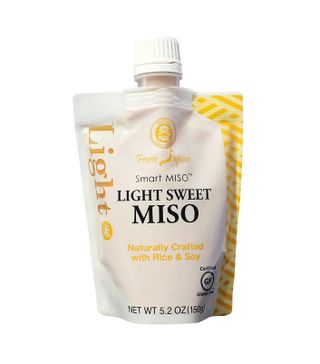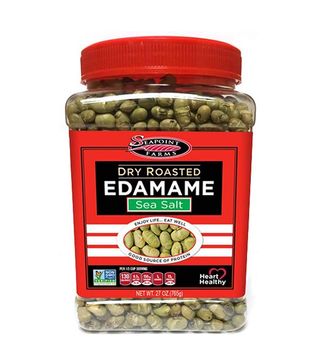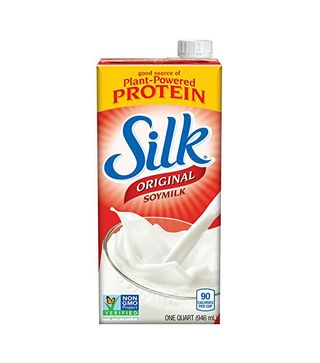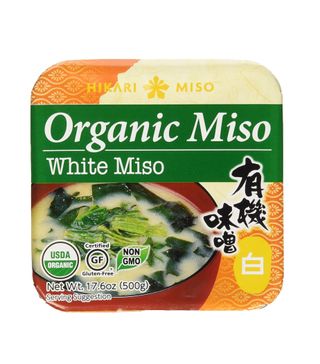Is Soy Good or Bad for You? An Explainer
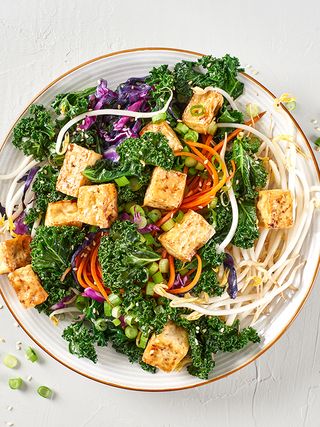
From tofu to tempeh, soy sauce to soy milk, the versatile soybean has seen its fair share of acclaims and controversies. When research suggested it could significantly reduce the risk for chronic diseases in the '80s, the native Asian bean became all the rage—an OG member of the health food movement that gave rise to the plant-based revolution. But alarming misconceptions linked to soy—breast cancer risks, thyroid problems, dementia—prevented it from fully reaching plant stardom.
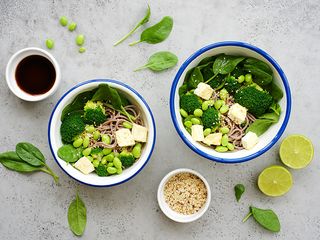
With the amount of conflicting information out there, what's the good word? Can soy heal us or hurt us? Is it a health booster or risky food? We're here to clear up the confusion. Below, we break down whether soy is a healthy alternative and how much of it you should eat.
But first, a brief science lesson.
Soybean Science 101
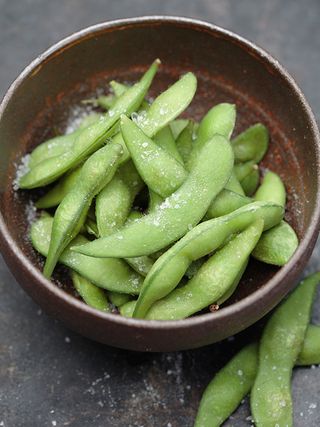
The human body needs 20 different amino acids to build muscle and regulate immune function. Our bodies create 11 of them on their own (called non-essential amino acids), so we have to get the other nine from food (aka, essential amino acids).
While animal protein provides all nine essential amino acids, it can also contain high levels of saturated fat and cholesterol associated with cardiovascular disease. A complete plant protein that will stack up against eggs and meat, soy is a nutritional powerhouse that touts an abundance of health benefits: a good source of fiber, vitamins, minerals, and nutrients including folate, riboflavin, vitamin K, selenium, potassium, and magnesium.

It is also one of few legumes that contain a high volume of omega-3 fatty acids (found mostly in fish), which help our bodies use insulin more efficiently and lower the incidence of diabetes. Studies have shown that a diet that includes whole soy foods may help reduce menopause-related hot flashes, and the American Heart Association has stated soy can diminish the risk of heart disease if it replaces animal protein consumption, especially for younger and postmenopausal women.
Whole, authentic forms of soy include edamame, tofu, tempeh, and soy milk. But the protein inside soy can also be extracted and transformed for commercial uses such as soy protein isolate, soy lecithin, and other soy extracts. Refined soy is almost everywhere, and this is the stuff that is giving soy a bad rap.
The Big Bad Soy Industry
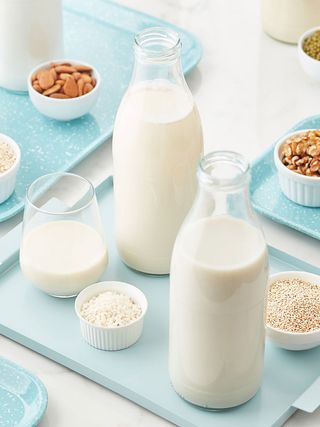
Many scientific studies that have linked soy to negative health effects were one, conducted on soy protein isolate, not whole soy (the plant) and two, administered on animals, so there were no human studies.
While consistent research and academic medical centers have lauded soy as a superfood, the problem is that food manufacturers have saturated soy protein isolate—or any of its other monikers—into a majority of processed foods, infiltrating everything from crackers to cereal, protein bars, deli meats, and even canned tuna. Deconstructed and remade into additives, thickeners, flavoring, and preservatives to the point where the byproduct that lines supermarket shelves is unrecognizable, the former high-quality protein is now another heavily processed and refined food that has almost nothing to offer nutritionally.

Additionally, over 90% of soy grown in the U.S. is genetically modified from industrial farms (hello, pesticides), which means the soy you are probably eating is not only chemically modified and processed, but it's also filled with pesticides! Bottom line: It's not just refined soy foods we need to refrain from; it's also GMO soy (in whole form).
So Is Soy Good for You or Not?
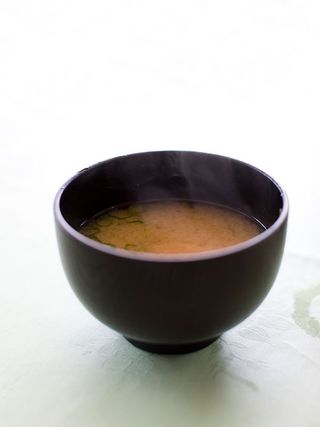
It depends. If you don't mess with the natural version of it—in other words, if you avoid eating processed or GMO soy—then yes, it is good for you. In moderate amounts, soy products are functional foods that can offer significant health benefits. How about soy as a good meat alternative? Again, it depends. Look for minimally processed whole soy products like edamame or tofu to retain full nutrients, and whenever possible, buy organic. Gut-friendly fermented soy foods such as tempeh, miso, or natto are healthy protein foods that will help boost immune function and digestion. Of course, you'll want to discuss with your doctor or a healthcare professional about soy's role in your diet since it might be different for everyone.
Below, take a look at a few soy products that might be worth adding to your diet.
Disclaimer
This article is provided for informational purposes only and is not intended to be used in the place of advice of your physician or other medical professionals. You should always consult with your doctor or healthcare provider first with any health-related questions.
Jenny Star Lor is a native Angeleno who began her professional career at entertainment publications such as Us Weekly and The Hollywood Reporter before embarking on a life-changing international adventure with her husband to Asia. They found themselves in the densely packed metropolis of Hong Kong among towering skyscrapers, delicious dim sum and cuisine from around the world. There, she realized her true passion lay in the health and wellness space, and she spent time writing for an award-winning media platform focusing on eco-wellness. Some of her favorite topics include nutrition, clean beauty, fitness, sustainability, and zero waste. After a few years living abroad, they returned stateside with a brand-new baby in tow and settled in the Tar Heel State of North Carolina. When not covering wellness trends, she's likely scrapbooking or teaching and training pole dance.
-
 I Only Ate Sakara Life Meals for 30 Days—Here Are 7 Things That Happened
I Only Ate Sakara Life Meals for 30 Days—Here Are 7 Things That HappenedThe brand's 30-Day Fall Reset is finally here.
By Erin Jahns
-
 The 6 Warning Signs You're Not Getting Enough Protein
The 6 Warning Signs You're Not Getting Enough ProteinAnd what to eat to up your intake.
By Sarah Yang
-
 Everything This Professional Ballet Dancer Eats to Fuel Her For Performances
Everything This Professional Ballet Dancer Eats to Fuel Her For PerformancesHer grocery staples include high-quality French butter.
By Candice Aman
-
 These 8 Foods Are the Worst for Rosacea—Here's What to Eat Instead
These 8 Foods Are the Worst for Rosacea—Here's What to Eat InsteadControl those flare-ups.
By Sarah Yang
-
 15 Things That Cause Bloating and How to Get Rid of It ASAP
15 Things That Cause Bloating and How to Get Rid of It ASAPTry these.
By Sarah Yang
-
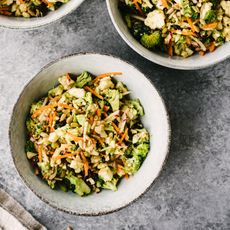 Is the Alkaline Diet Overhyped? What Experts Want You to Know
Is the Alkaline Diet Overhyped? What Experts Want You to KnowHere's how it works.
By Sarah Yang
-
 I'm an Imperfect Dietitian and My Key to Eating Healthy Meals Is Convenience
I'm an Imperfect Dietitian and My Key to Eating Healthy Meals Is ConvenienceTake a peek at my weekly grocery staples.
By Candice Aman
-
 Avoid These 6 Foods—They'll Wreck Your Gut Health
Avoid These 6 Foods—They'll Wreck Your Gut HealthWhat to eat instead.
By Sarah Yang
